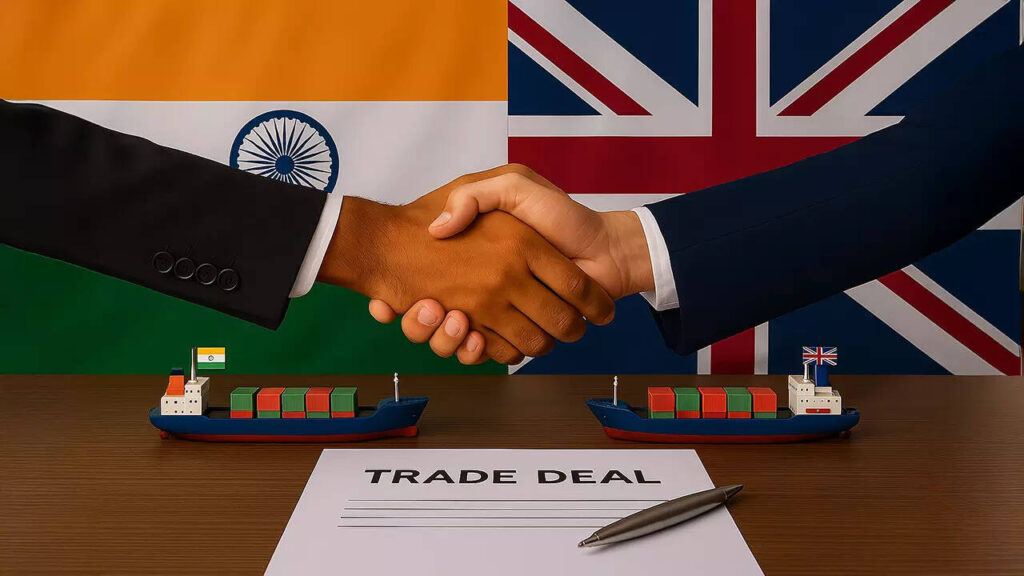In a significant development for India-UK economic ties, Commerce and Industry Minister Piyush Goyal and the United Kingdom’s Secretary of State for Business and Trade, Peter Kyle, held a high-level bilateral meeting in Mumbai on October 8 to put a roadmap in place for the implementation of the much-anticipated India-UK Comprehensive Economic and Trade Agreement (CETA). The meeting took place as British Prime Minister Keir Starmer engaged in his first official visit to India since taking over the role, revealing the new energy in both partners’ strategic and commercial relationship.
Both ministers agreed to reposition the Joint Economic and Trade Committee (JETCO) as a mechanism for overseeing CETA’s roll out, ensuring a coordinated, and results-oriented approach. According to a statement from India’s commerce ministry, the meeting was a “significant step” to operationalising the agreement and captured both countries’ aspiration and commitment to roll out CETA quickly for the benefit of businesses and consumers in both nations.
Speaking at a business event in Mumbai, Prime Minister Starmer reaffirmed his support for the deal to proceed, stating he wanted to see the FTA implemented “as soon as humanly possible.” Starmers travels included a business, academic, and cultural delegation with 100 members, indicating the UK’s eagerness to strengthen business ties with India and access one of the fastest growing major economies in the world.
The free trade agreement was struck in July after three years of negotiation, and it is ultimately aimed at removing barriers to trade, simplifying investment flows, and opening opportunities in advanced manufacturing, clean energy, digital trade, and professional services. However, since the UK is still working through its ratification process, full implementation of the agreement could still take a year.
Throughout their discussions, Goyal and Kyle addressed ways to maximize the potential of the FTA—such as tackling non-tariff barriers, increasing regulatory cooperation, and enhancing supply chain connectivity. The two ministers stressed their mutual objective of accelerating bilateral trade to double by 2030, capitalizing on the confluence of India’s growing industrial base and the UK’s unique strengths in innovation, technology, and services.
Following the ministerial meeting, several roundtables were convened on priority sectors, including infrastructure, consumer products, food and beverages, science and technology, financial services, education and skills. The India–UK CEO Forum met in Mumbai, co-chaired by CEOs from both sides, to engage with new opportunities in trade and investment.
With both governments taking steps forward toward activating CETA, the partnership is primed to initiate a new era of collaboration—underpinned by shared prosperity, sustainability, and mutual growth.












More Stories
‘Work shouldn’t consume every hour’: Indian tech professional on UK vs India office culture
NSE is said to invite banks to pitch for nearly Rs 23,000 crore IPO
All 7 On Board Air Ambulance Flying To Delhi Die In Crash In Jharkhand